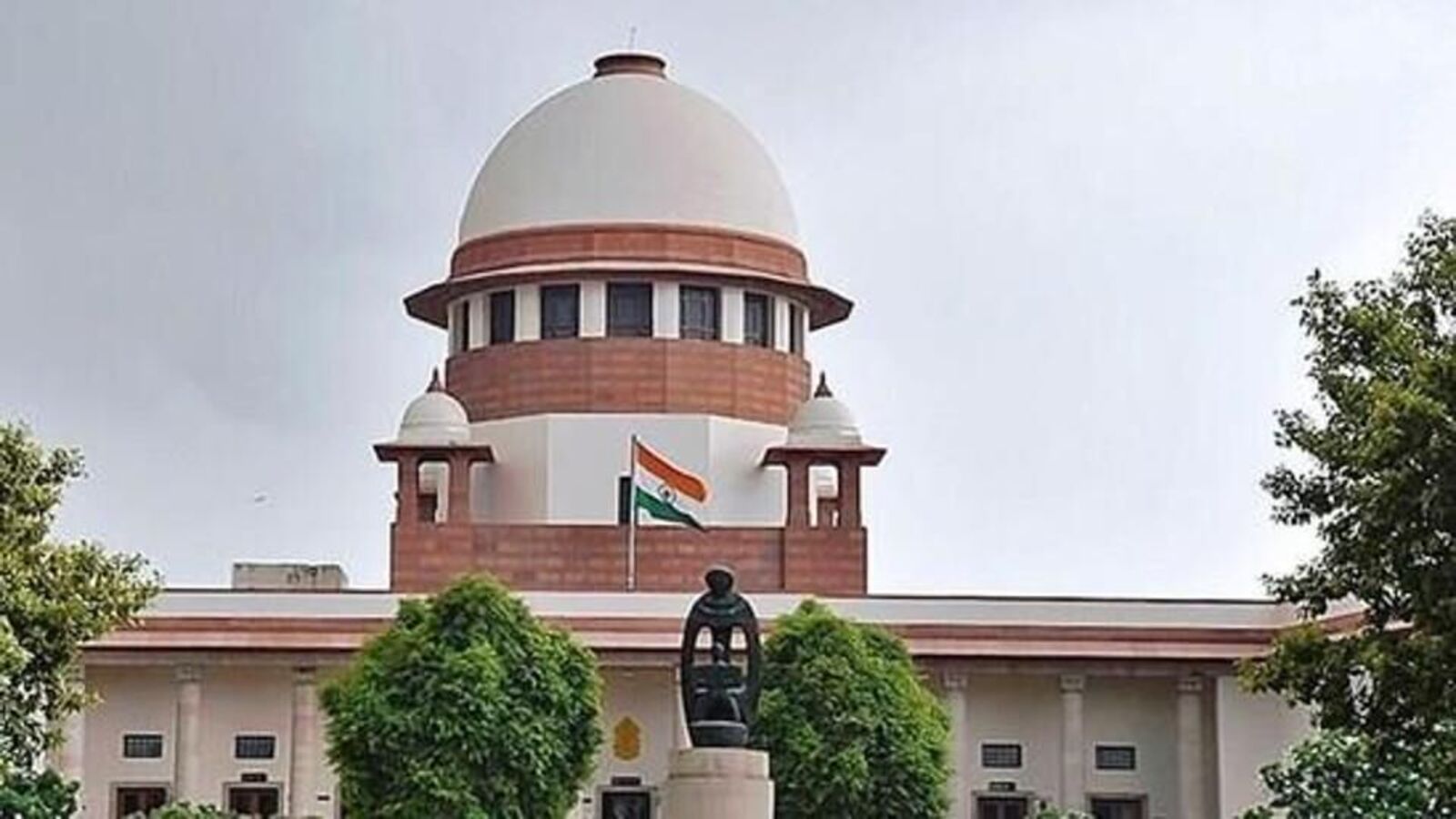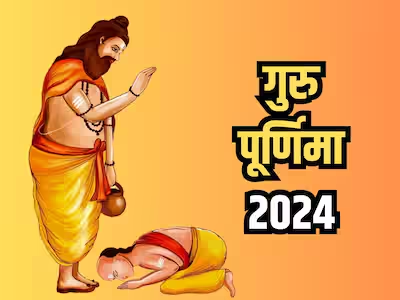[ad_1]
In April 2019, the Supreme Court declined to stay the electoral bonds scheme, emphasising the need to reduce the cash component in the electoral process.
The Constitution bench, including Justices Sanjiv Khanna, BR Gavai, JB Pardiwala, and Manoj Misra, began hearing arguments on the matter on October 31 last year.
Track LIVE: Electoral Bonds scheme verdict from Supreme Court
What is the Electoral Bond Scheme?
Electoral bonds were introduced in the 2017 Union Budget to enhance transparency in political funding. Concerns arose due to donor anonymity and lack of disclosure. The cash donation limit was reduced from ₹20,000 to ₹2,000, while mandatory disclosure remained at ₹20,000. Private entities could buy and transfer these bonds to political parties.
It was notified by the government on January 2, 2018, and pitched as an alternative to cash donations made to political parties as parties. In essence, electoral bonds are monetary instruments that citizens or corporate groups can buy from a bank and give to a political party, which is then free to redeem the same for money.
Only political parties registered under Section 29A of the Representation of the People Act, 1951, and those that secured at least one percent of the votes in the last general election to the Lok Sabha or state legislative assembly are eligible to receive electoral bonds.
Also Read | Farmers’ protest Day 3: Centre to hold talks again with farm leaders; ‘rail roko’ in Punjab today. 10 key points
According to the notification, eligible political parties can encash electoral bonds only through accounts with authorized banks.
According to the Ministry of Finance, “The purchaser would be allowed to buy an electoral bond(s) only on due fulfilment of all the extant KYC norms and by making payment from a bank account. It will not carry the name of the payee. Electoral Bonds would have a life of only 15 days during which they can be used for donating only to the political parties registered under section 29A of the Representation of the Peoples Act, 1951 (43 of 1951) and which secured not less than one per cent of the votes polled in the last general election to the House of the People or a Legislative Assembly.”
Amendments removed the cap on corporate donations and disclosure obligations. They are promissory notes in denominations from ₹1,000 to ₹1 crore, available only from the State Bank of India. Donors remain anonymous, known only to the bank. Bonds can be encashed by the political parties with Election Commission-registered bank accounts. The aim is to bring transparency to political funding and prevent fund misuse, amending various legislations for accountability and transparency in political financing.
Numerous amendments to various legislations, including the Foreign Contribution Regulation Act, Representation of the People Act, Income Tax Act, and the Companies Act, with the claim of bolstering accountability and transparency in political financing.
Also Read | Bharat Bandh news: Farmers announce nationwide protest on 16 Feb. Banks, offices shut on Friday? Know details
Political Funding: BJP Dominates Electoral Bond Contributions
According to the annual audited report submitted to the Election Commission by the Bharatiya Janata Party (BJP), the saffron party received nearly ₹1,300 crore through electoral bonds in 2022-23. The party’s total contributions stood at ₹2,120 crore in the 2022-23 fiscal, of which 61 per cent came from electoral bonds.
The funding from electoral bonds to the Congress was ₹171 crore in 2022-23, down from ₹236 crore in 2021-22.
Government’s Affidavit to Supreme Court
In an affidavit submitted on October 29, the central government addressed pleas challenging the electoral bonds scheme. Attorney General R Venkataramani stated that “citizens do not possess a general right to know the sources of electoral bonds.”
Venkataramani emphasized that the “right to know” should have reasonable restrictions and be exercised for specific purposes. The government argued against a “general right to know everything for undefined ends,” expressing concerns about the broad scope of such a right.
Also Read | Top events on February 15: Farmers’ protests, Electoral Bonds ruling, Delhi Budget, CBSE exams and more
Concerns Raised by Opposition, Institutions
The electoral bonds case, initiated in 2017 by the Association for Democratic Reforms (ADR), has seen multiple petitions, including ones from the Communist Party of India (Marxist), Congress leader Jaya Thakur, and concerned individuals. It questions the legitimacy of amendments in the Finance Act of 2017 and the Finance Act of 2016.
The petitioners argue that these changes allow unlimited, unchecked funding for political parties, with a bias toward the ruling government. Electoral bonds, mainly issued in high denominations, raise concerns of corporate dominance over individual donors, and the anonymity for donors further fuels suspicion. Transparency issues exist, as funds transferred to political parties make it challenging to track corporate contributions, infringing upon citizens’ right to information and creating corruption risks, exacerbated by recent changes to the Companies Act.
In 2023, Prashant Bhushan, representing the NGO Association for Democratic Reforms (ADR), argued on October 10 that adjudication is necessary before using the electoral bond scheme in the 2024 general elections. He contended that anonymous funding through electoral bonds encourages corruption and violates citizens’ right to a corruption-free nation.
Also Read | Weather update: IMD issues rainfall alert in THESE states till 21 February. Check full forecast here
There were conflicting stances between the government and the Election Commission in court regarding political funding. The government aimed to maintain donor anonymity, while the EC advocated for transparency by revealing donor names. The Supreme Court is set to begin hearing the batch of pleas on October 31.
Further, details from an RTI filed by activist Lokesh Batra revealed that the Ministry of Finance implemented changes to the scheme without consulting the Election Commission, which is responsible for overseeing elections. The Election Commission was merely “informed” about the changes and never gave its consent. Communication with the Election Commission regarding the issuance of electoral bonds in December 2022 was last-minute and led to dissatisfaction.
Additionally, the Reserve Bank of India (RBI) had expressed disagreement with several aspects of the scheme, including concerns about money laundering. The then RBI Governor Urjit R. Patel had warned the government about the potential misuse of electoral bonds but the government did not pay any heed. RBI favoured issuing physical bonds and wanted to be the scheme’s executor, rather than a commercial bank, but these suggestions were rejected by the ministry. The lack of consultation with these critical institutions has raised transparency and accountability concerns in the electoral bonds scheme.
Unlock a world of Benefits! From insightful newsletters to real-time stock tracking, breaking news and a personalized newsfeed – it’s all here, just a click away! Login Now!
Published: 15 Feb 2024, 10:19 AM IST
[ad_2]







Leave a Reply